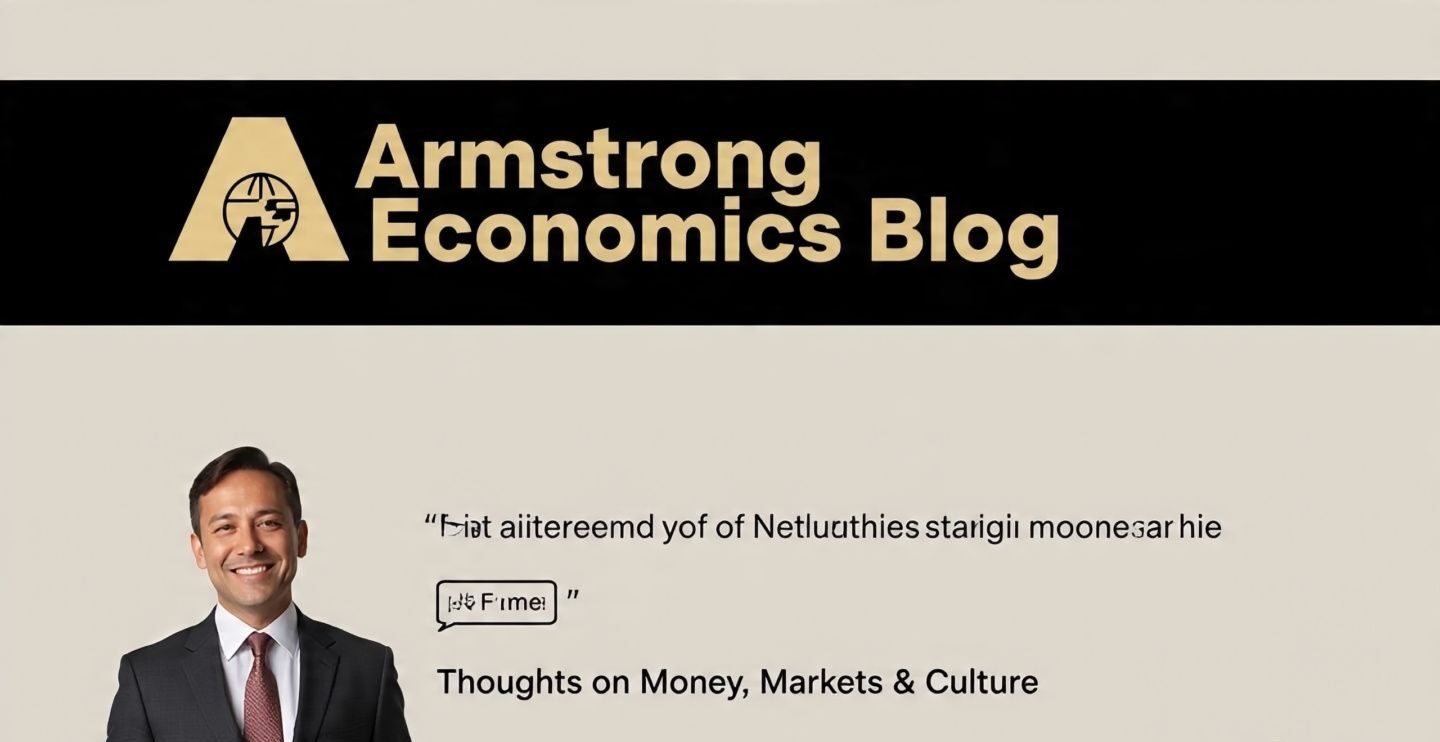Introduction
The Armstrong Economics Blog is a leading platform that provides analytical insights into world economics, geopolitics, and market trends. Founded by Martin Armstrong, the blog explores cycles, financial predictions, and global policy impacts. It’s especially known for its independent analysis, unique forecasting models, and bold predictions in economic commentary.
Who is Martin Armstrong?
Martin Armstrong is the founder and voice behind Armstrong Economics. A former financial advisor and economic forecaster, he gained fame for developing the Economic Confidence Model, which predicts market trends through cyclical patterns. His work has been influential among economists, investors, and political observers across the globe.
The Economic Confidence Model
Armstrong’s Economic Confidence Model (ECM) is based on an 8.6-year business cycle. The model claims to forecast major economic turning points with remarkable accuracy. The 8.6-year cycle equals 3,141 days — a number inspired by pi (π), which Armstrong ties into his theories about time, cycles, and natural order in markets.
Topics Covered on the Armstrong Economics Blog

The blog covers a wide range of economic and political topics, often with unique angles that differ from mainstream media. Articles include in-depth reviews of government policy, central bank actions, historical parallels, and current market behavior. Armstrong’s posts are known for connecting historical cycles with modern trends.
Economic and Market Forecasting
A major focus of the blog is predicting market behavior, including equities, commodities, and currencies. Armstrong often contrasts real economic activity with manipulated data or media narratives. His forecasts challenge mainstream institutions like the Federal Reserve and IMF, often suggesting they’re reactive, not proactive.
Global Political Analysis
Politics and economics are deeply connected, and Armstrong explores this relationship in detail. From European fiscal policy to U.S. elections and global trade agreements, his blog provides critical commentary on political decisions and their economic consequences. He also emphasizes how political instability impacts financial markets.
Unique Aspects of the Armstrong Economics Blog
One of the most distinguishing features of the Armstrong Economics Blog is its non-mainstream approach. Armstrong frequently challenges widely accepted theories and economic models, making his blog a go-to resource for independent thinkers, contrarians, and economic realists.
Cycle-Based Predictions
While many economists use static data and short-term analysis, Armstrong emphasizes long-term cycles. His belief is that everything from wars to market crashes follows a pattern, and understanding these patterns gives insight into future events. This cyclical approach attracts readers looking for deep, structural forecasting.
Global Perspective
Unlike many financial blogs that focus only on the U.S. or Western markets, Armstrong Economics offers a truly global perspective. Posts cover Asia, Europe, South America, and the Middle East. This global view helps readers understand how international events shape local economies and personal investments.
Educational Value of the Blog
Beyond predictions and analysis, Armstrong’s blog is a valuable educational tool. He often writes historical retrospectives, explaining how past events mirror today’s financial and political issues. His writing is both accessible and thought-provoking, making it useful for students, investors, and policy analysts.
Historical Context and Insight
Armstrong’s ability to draw parallels between modern crises and historical events adds depth to his blog. Whether he’s referencing the fall of Rome or the Great Depression, his analysis shows how history repeats itself in economic behavior, providing important lessons for today’s world.
Encouraging Critical Thinking
Unlike sources that encourage passive consumption, the blog encourages readers to question narratives and dig deeper. Armstrong challenges followers to look at data over dogma, and facts over fear. This approach fosters a deeper understanding of global systems, empowering readers to think independently.
Criticism and Controversy
No analysis of the Armstrong Economics Blog is complete without acknowledging the criticism and controversy that surrounds it. Martin Armstrong’s confrontational style and past legal issues have led some to question his credibility. However, his supporters argue that these experiences have only sharpened his insight.
Legal Troubles and Public Perception
Armstrong spent years in prison related to a contempt of court case involving financial fraud. While critics point to this as a stain on his career, fans believe it exposed corruption within the financial and legal systems. Regardless, it adds to the complexity of his public persona.
Independent Yet Polarizing
Because Armstrong often contradicts government and media narratives, his blog has developed a polarizing reputation. Some view him as a visionary economist, while others see him as a conspiracy theorist. Nonetheless, the blog’s consistent readership proves its ongoing relevance in economic debate.
Practical Uses of Armstrong Economics Blog

Investors, researchers, students, and global citizens can all benefit from the insights provided by the Armstrong Economics Blog. Its mix of predictive analysis, historical comparison, and global overview make it a valuable resource for anyone seeking deeper understanding of how economies truly function.
For Investors and Traders
Traders use Armstrong’s forecasts to plan market entry and exit points. His cyclical charts and global overviews help investors anticipate major shifts. Many claim that reading the blog regularly gives them an edge in understanding macroeconomic conditions, interest rate trends, and geopolitical risk.
For Students and Academics
Students of economics, political science, and history find Armstrong’s work particularly rich in content. The blog provides cross-disciplinary perspectives, making it ideal for research and discussion. It bridges the gap between theory and application, showing how abstract concepts affect real-world decisions.
Armstrong Economics in a Changing World
In today’s complex financial landscape, Armstrong’s blog has become increasingly relevant. As people question government transparency and seek independent sources, the Armstrong Economics Blog offers alternative perspectives that are grounded in data, history, and long-term forecasting.
Rise in Popularity During Crises
During times of crisis — such as the COVID-19 pandemic, economic recessions, or wars — the blog experiences a spike in readership. People seek out Armstrong’s analysis for clarity and long-term perspective when mainstream news seems chaotic or contradictory.
Role in Financial Literacy
Armstrong’s work contributes to financial literacy by explaining difficult topics in an approachable way. His articles help readers grasp the interconnectivity of global markets, the limitations of government policy, and the importance of independent financial thinking.
Conclusion
The Armstrong Economics Blog is more than just a forecasting site — it’s a platform that challenges norms, educates its readers, and provides a global view of political and economic dynamics. Whether you’re a casual reader or a seasoned investor, exploring this blog can offer a unique lens into the future of the world economy.
Its cycle-based analysis, global scope, and thought-provoking commentary continue to make it a standout voice in economic blogging. Despite controversy, the blog remains a critical resource for those who want independent economic insight in a world flooded with biased information.
FAQs
What is Armstrong Economics Blog?
A financial blog by Martin Armstrong that focuses on global economic forecasting using historical cycles and independent analysis.
Who reads Armstrong Economics Blog?
Investors, students, economists, and independent thinkers seeking non-mainstream economic insights read the blog.
What makes it different from other blogs?
It uses the Economic Confidence Model and offers a unique perspective on how history, politics, and global events shape markets.
Is Armstrong Economics reliable?
While controversial, the blog offers data-driven and cycle-based forecasts that many followers find accurate and insightful.


